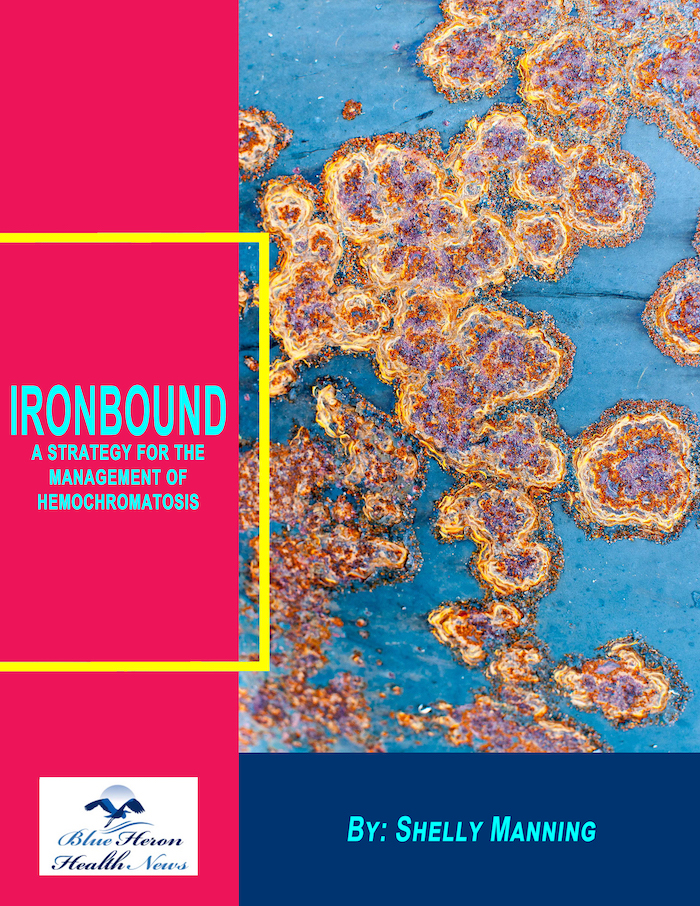Ironbound™ A Strategy For The Management Of Hemochromatosis By Shelly Manning if you are suffering from the problems caused by the health condition of HCT due to excess amount of iron in your body then instead of using harmful chemical-based drugs and medications you are recommended to follow the program offered in Ironbound Shelly Manning, an eBook. In this eBook, she has discussed 5 superfoods and other methods to help you in reducing the level of iron in your body in a natural manner. Many people are benefited from this program after following it consistently.
What causes cholesterol to become oxidized?
Cholesterol becomes oxidized primarily due to oxidative stress, a condition where there is an imbalance between free radicals (reactive molecules) and the body’s ability to neutralize them with antioxidants. This oxidative process can occur through a variety of factors and mechanisms. Here are the key causes of cholesterol oxidation:
1. Oxidative Stress:
- Free radicals or reactive oxygen species (ROS) are highly unstable molecules that seek to stabilize themselves by reacting with other molecules, including cholesterol. When LDL cholesterol (low-density lipoprotein) is exposed to these free radicals, it undergoes chemical changes, becoming oxidized LDL (oxLDL).
- Oxidative stress is the primary driver of cholesterol oxidation and can be caused by several factors:
2. Diet and Nutrition:
- Unhealthy diet: Diets rich in trans fats, saturated fats, and refined sugars contribute to oxidative stress. These unhealthy fats increase the production of free radicals in the body, which can oxidize cholesterol in the bloodstream.
- Low antioxidant intake: A lack of foods high in antioxidants (such as fruits, vegetables, and whole grains) means that the body has fewer natural defenses against oxidative stress. Antioxidants help neutralize free radicals, reducing the chances of cholesterol oxidation.
- High-fat cooking: Cooking methods such as frying or grilling at high temperatures can oxidize cholesterol in foods, particularly in animal fats.
3. Smoking:
- Cigarette smoke contains numerous harmful chemicals, including free radicals, which increase oxidative stress. Smokers are at a higher risk for cholesterol oxidation because the smoke directly exposes the bloodstream to these harmful compounds.
- Nicotine and other chemicals in tobacco smoke can accelerate the oxidation of LDL cholesterol and promote atherosclerosis.
4. Inflammation:
- Chronic inflammation is a key cause of oxidative stress and can lead to the oxidation of cholesterol. Conditions such as obesity, diabetes, hypertension, and autoimmune diseases often involve elevated levels of inflammation, which accelerates the oxidation of LDL cholesterol.
- Inflammatory cytokines released during inflammation can interact with LDL cholesterol, increasing its susceptibility to oxidation.
5. Environmental Factors:
- Pollution: Exposure to air pollution and other environmental toxins increases the number of free radicals in the body, which can lead to increased oxidative stress and cholesterol oxidation.
- UV radiation: Prolonged exposure to ultraviolet (UV) light from the sun can also increase the production of free radicals in the body.
6. Poor Sleep and Stress:
- Chronic stress: High levels of stress release stress hormones such as cortisol, which can lead to increased oxidative stress. Chronic stress has been linked to higher levels of oxidized cholesterol.
- Poor sleep: Insufficient sleep or sleep disorders can elevate oxidative stress levels in the body, making cholesterol more prone to oxidation.
7. Excessive Alcohol Consumption:
- Alcohol, especially in excess, can lead to the production of free radicals and a state of oxidative stress. This contributes to the oxidation of cholesterol, potentially leading to cardiovascular damage and atherosclerosis.
8. Metabolic Disorders:
- Diabetes: People with diabetes often have higher levels of oxidative stress. Hyperglycemia (high blood sugar) itself can contribute to the production of free radicals and increase the oxidation of LDL cholesterol.
- Obesity: Obesity leads to increased fat storage and the production of free radicals, both of which can promote cholesterol oxidation. Visceral fat (fat around internal organs) is especially linked to higher levels of oxidative stress.
- Hypertension (high blood pressure): High blood pressure can lead to the generation of free radicals, which increases oxidative stress and the oxidation of cholesterol.
9. Genetic Factors:
- Some individuals may be genetically predisposed to having higher oxidative stress levels, making them more susceptible to the oxidation of cholesterol. For example, individuals with genetic variations in antioxidant enzymes may have reduced ability to neutralize free radicals, leading to an increased risk of cholesterol oxidation.
10. Aging:
- As people age, the body’s ability to produce antioxidants naturally decreases. This decline, combined with cumulative exposure to environmental toxins and metabolic stress, increases oxidative stress and promotes the oxidation of cholesterol.
Summary:
Cholesterol oxidation occurs when LDL cholesterol interacts with free radicals and reactive oxygen species, causing a chemical change that makes the cholesterol more harmful. This process is influenced by factors such as unhealthy diet, smoking, chronic inflammation, oxidative stress, genetics, and environmental exposure. Oxidized cholesterol contributes to atherosclerosis and cardiovascular disease, making it essential to manage oxidative stress through a healthy lifestyle, balanced diet, exercise, and stress management.

Ironbound™ A Strategy For The Management Of Hemochromatosis By Shelly Manning if you are suffering from the problems caused by the health condition of HCT due to excess amount of iron in your body then instead of using harmful chemical-based drugs and medications you are recommended to follow the program offered in Ironbound Shelly Manning, an eBook. In this eBook, she has discussed 5 superfoods and other methods to help you in reducing the level of iron in your body in a natural manner. Many people are benefited from this program after following it consistently.